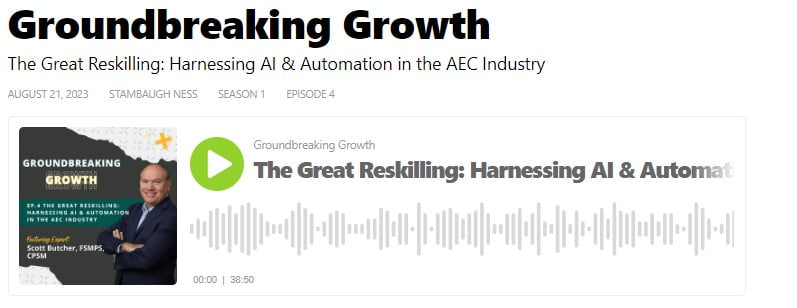Skill Evolution: Future-Proofing Your Workforce

My first job was as a busgirl at a small town restaurant. At the time, I didn’t realize the many critical workforce skills I was learning that would serve me well in every position I have worked in since then – customer service, efficiency, organization, professionalism, how to work independently as well as being a valuable member of a team and how to treat people with respect even when it may be challenging to do so.
These life skills are not learned with formal education but through coaching and mentoring of those who lead by example and show us the way. I went to college to learn the technical skills needed for the work I wanted to do. Not surprisingly, the skills I required 20+ years ago have evolved, changed, and some have even become irrelevant. As we look ahead to the future, we should fully anticipate that skills will continue to evolve. Here are some areas to pay close attention to regarding workforce skills.
Technology
Technology is not going away. It will continue to change whether it evolves or becomes obsolete because something better takes its place (another discussion for another day). Technology skills that new graduates have learned may or may not align with the technology being used in the organization they choose to work for. But it’s not all about younger generations. Current employees, those in the workforce for 5, 10, or 20+ years will need to be trained on the newer technologies that are developed and implemented. Rapidly changing technology keeps everyone on their toes, and organizations must respond.
Artificial Intelligence
The AI conversation is happening in almost every industry now. AI will make certain jobs easier but must be managed and maintained to ensure authenticity and quality in our products and services. A portion or all of a person’s position may change due to the introduction of AI and/or robots into the workforce, but it will also create opportunities.
Leadership must balance how to leverage AI with the current workforce’s strengths. If any gaps present themselves, it provides an excellent opportunity for investing in training and development, helping people continue to learn and grow, which is what most of us desire. This upskilling of employees can keep a company competitive while meeting the demands of younger generations to be on a continuous growth path.
Transition of Generations
ICYMI – there are approximately 78 million baby boomers, and they will be retiring partially or fully in the next 5+ years. Multiple generations will continue to move through our organizations, and as a result, skills may come and go. While generational shifting of this magnitude can have its challenges, it can also present opportunities.
Technical skills are important, but more attention should be placed on capturing the experiences accumulated, critical thinking ability, problem-solving skills, and wisdom through mentoring and coaching. Some of this process will happen naturally through pairing up different individuals on projects, but intentionally doing more will yield the best return on investment.
Next Steps
It is more important than ever to inventory what skills exist in your organization and which ones will be needed as the organization moves into the future. This anticipatory approach helps define learning and development priorities and highlights new workforce skills to consider when hiring employees. Pairing skills with career paths provides a significant advantage for recruiting and retaining talent. We hope to see you at our upcoming webinar, where we will discuss handling skills gaps, building meaningful career paths, and more.




